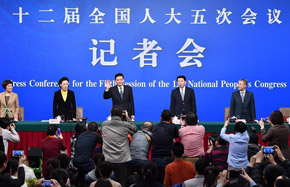Are cities expanding too fast and too soon?
No haste
Harvard University initiated a plan for campus expansion 10 years ago, when Larry Summers was still its president. To construct new teaching and research buildings on the other side of the Charles River, the university went through several rounds of communication with faculty, students and local residents, and even set up an exhibition room to present its plan to the public.
But still, the construction may take another 10 years or longer before it can be accomplished. While Harvard was in the process of communication, hundreds of universities in China have established brand-new campuses and even university towns.
These hasty developments, while reflecting local government officials' eagerness to contribute to the modernization of our country, also reveal the limits of their terms of office. Every official wants to present a good record when their terms of office are over so as to lay the foundation for their next steps. The pace of urbanization, however, is not necessarily in step with the officials' terms.
As a result, quality problems, like those revealed in recent extreme weather in a lot of Chinese cities, are beginning to emerge. What's worse, the negative results are far from being fully discovered, as the cities' incumbent leaders are usually reluctant to expose anything negative about their predecessors, who are in most cases their current bosses.
A problem related to the change of officials is the change of policies. Very often in China, transitions of government officials also bring about transitions of ideas and policies. Although it is necessary for policies to evolve as society develops, changes, if too frequent, only suggest that the existing policies are not forward-looking enough.
In Charleston, South Carolina, the setting of Gone with the Wind, many historical buildings from the colonial era remain well preserved today, as Mayor Joseph Riley's life's pursuit is to protect the historical buildings and preserve the city's history and culture.


















